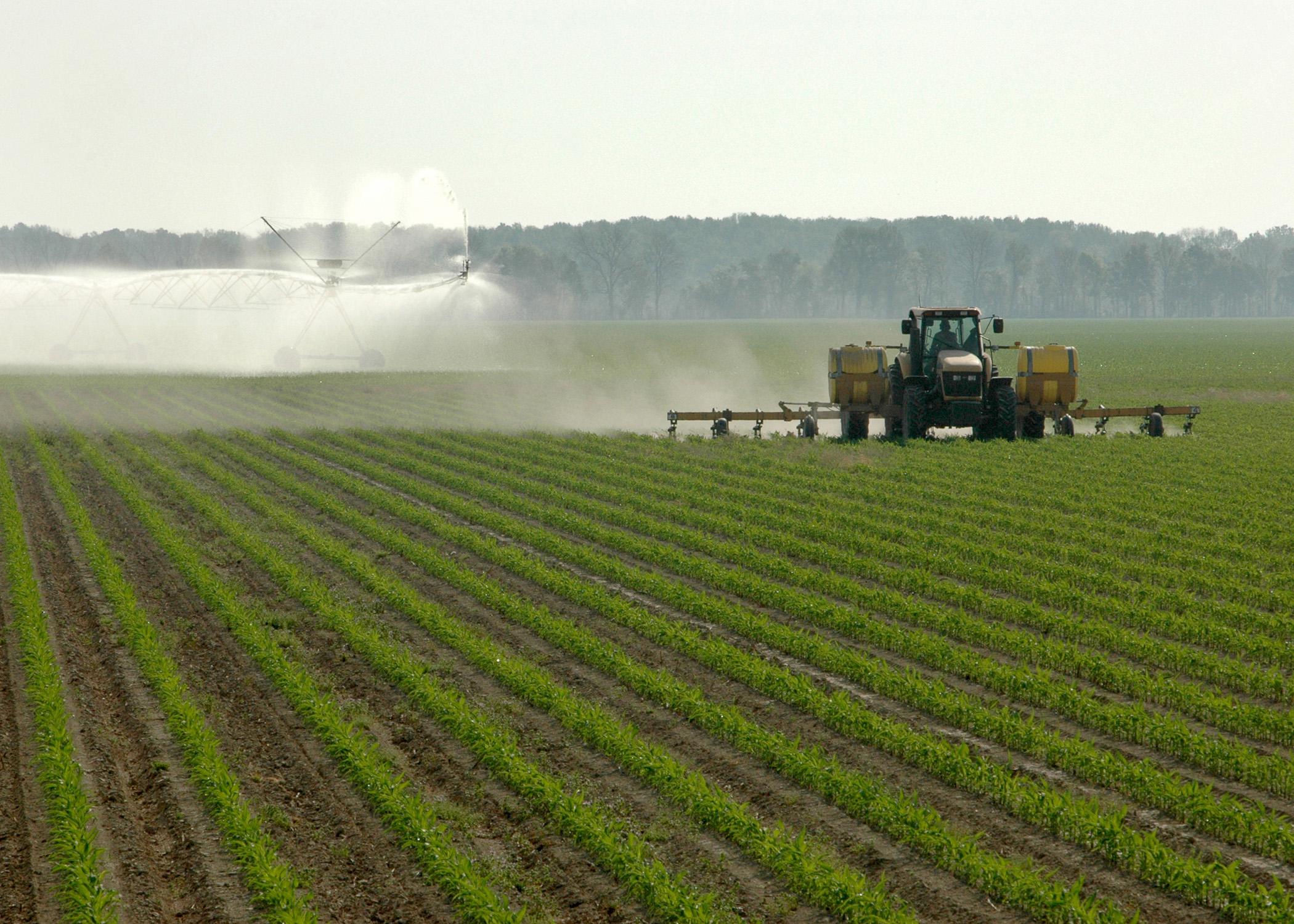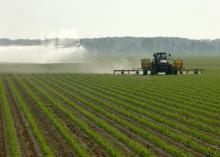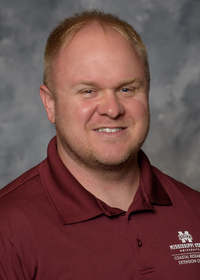Information Possibly Outdated
The information presented on this page was originally released on October 3, 2013. It may not be outdated, but please search our site for more current information. If you plan to quote or reference this information in a publication, please check with the Extension specialist or author before proceeding.
Irrigation, water conservation issues are high MSU priorities
MISSISSIPPI STATE – When water runs clear and fast from a tap, it’s often hard to believe there could be a challenge for individuals, farmers and communities to keep it clean and plentiful.
Joe Street, associate director of the Mississippi State University Extension Service, warned that water supplies could be depleted, even in the South, where rainfall, rivers, streams and lakes are plentiful. This problem can already be seen in the Mississippi Delta, where producers must drill deeper to tap the Mississippi River Valley’s alluvial aquifer.
“Mississippi is fortunate to have abundant water sources, but we do not have infinite water supplies, so conservation is important,” Street said. “Adequate access to clean water is vital to agriculture and all aspects of life, and this drives Mississippi State’s involvement in water quality and conservation efforts.
“Agriculture is the driving force to the Delta’s economy, so we must maintain an adequate water supply,” he said.
Some communities in drought-stressed states have rationed water supplies for farms and home landscapes. Water metering has already become a topic of serious conversation in Mississippi’s farming communities.
Words like conservation, recharge, efficiency, run-off and irrigation are used when MSU researchers and Extension Service professionals address the complex challenges of preserving the state’s water supply.
“In the Delta in the summer, we’re always 10 days from a drought,” said Jason Krutz, an Extension irrigation specialist who also does research with the Mississippi Agricultural and Forestry Experiment Station. “If you don’t get rain in 10 days, you’re in trouble and will need to irrigate.”
Irrigation efficiency in row-crop operations is a major concern in the Mississippi Delta and many parts of the country. Noncommercial water use, home lawns and municipal sanitation issues also factor heavily into the water discussion in Mississippi.
In the Delta, MSU experts have introduced Row-crop Irrigation Science and Extension Research, or RISER, to help Delta producers irrigate row crops more efficiently and economically. The multifaceted approach helps producers reduce irrigation water use while maintaining or improving crop yields and profitability.
“The RISER plan developed by MSU can help producers better manage irrigation and increase production and profitability,” Krutz said.
Another of MSU’s water conservation projects is Research and Education to Advance Conservation and Habitat, or REACH, led by Robbie Kroger, an assistant professor of aquatic sciences in the MSU Department of Wildlife, Fisheries and Aquaculture.
As of late September, this program includes 41 farmers who use REACH expertise in determining what management practices to use on their acreage. Collaborating producers also learn from each other. This information sharing is a significant benefit of the REACH initiative.
“These farmers have a conservation mindset, and they want to be a part of REACH to get access to expertise across the MSU campus and from the many collaborating agencies,” Kroger said. “They get scientifically defensible data from us, and they get to tell the story of what they’re doing on their land.”
REACH is a collaboration of the MSU Extension Service, Experiment Station and Forest and Wildlife Research Center. It uses demonstration projects as training tools, where farms in the program model practices for others to see before implementing them on their own property.
“Our goal with REACH is to create a network of cooperative farms to showcase different types of conservation practices, demonstrate how well they work for agriculture and the environment, and serve as models for sustainable methods,” Kroger said.
MSU is involved in water issues from a variety of other standpoints. Jason Barrett, an instructor with the Extension Center for Government and Community Development, works with municipal water systems, rural water associations and private utilities. He also provides training to homeowners with private wells.
“My focus is to keep our public drinking water supplies in compliance so we have safe, affordable drinking water for our Mississippi communities,” Barrett said. “We provide our drinking water suppliers with the available resources and knowledge to operate as efficiently as possible while promoting conservation of the groundwater supply.”
Brian Templeton, an Extension associate in the MSU Department of Landscape Architecture, is involved in projects to reduce and improve water use in home and urban landscapes.
“I have teamed with assistant professor Cory Gallo and students in the MSU Department of Landscape Architecture to design and build landscape enhancements at the Oktibbeha County Heritage Museum in Starkville that demonstrate a variety of storm-water management techniques,” Templeton said.
Others in the department are conducting research involving components of “green infrastructure,” including green roofs, flow-through planters and rain gardens.
Larry Oldham, Extension soil specialist, works on nutrient management issues to protect water quality throughout the state. Billy Kingery, a MAFES soil scientist, is concerned with reducing problems associated with runoff. Joe Massey, an associate professor of plant and soil sciences, has invested more than 10 years into cropping systems and water conservation research, and his work has built strong collaborations in the Midsouth.




